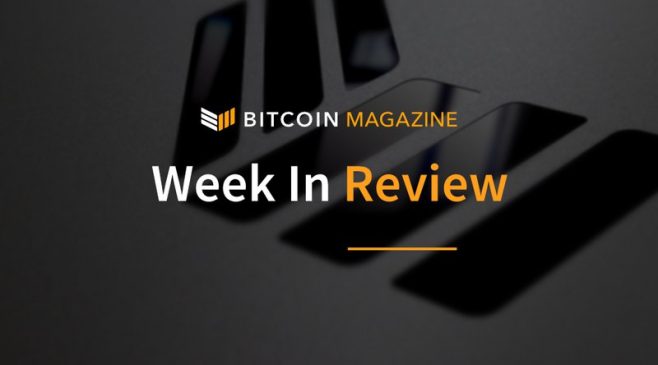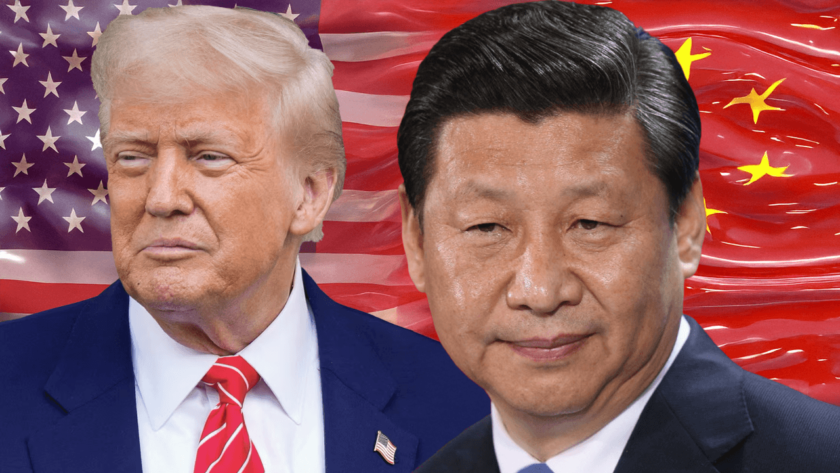This week in the industry, we saw the gears of government and regulation grinding, we check in on some mining news and we take a moment to reflect on the state of the market and industry innovation. Here are some of Bitcoin Magazine’s top bitcoin, blockchain and cryptocurrency news stories for the week.
Stay on top of the best stories in the bitcoin, blockchain and cryptocurrency industry. Subscribe to our newsletter here.
The Latest in Regulation
Not a Done Deal: U.S. SEC “Will Review” Most Recent ETF Decisions
China Blocks Access to Over 120 Offshore Digital Currency Exchanges
WeChat Shuts Down Numerous Crypto Media Accounts
Top Crypto Exchanges Join Winklevosses’ Self-Regulatory Organization
This Wednesday, the United States Securities and Exchange Commission released orders on nine bitcoin exchange traded fund (ETF) proposals. Each of the three orders, like those that preceded them, shot down all of the ETFs in question.
But these decisions, the SEC revealed the next day, are now up for review. This development has offered a glimmer of hope for the industry in its slow-slog toward a bitcoin-backed, exchange-traded product.
In the march toward clearer crypto regulation in the States, exchanges have taken the lead in an attempt to quicken the pace. The Virtual Currency Association, a self-regulatory organization spearheaded by the Winklevosses and their Gemini exchange, added three new members this week. With these latest additions, the VCA continues to work toward its goal of “establishing an industry-sponsored, self-regulatory organization (SRO) to oversee virtual commodity marketplaces,” in advance of a summit to be held this September.
While the U.S. grapples with regulations and oversight for its own virtual currency markets, the Chinese government is looking to siphon its citizens’ access to crypto trading venues. Chinese officials shuttered access to over 120 offshore exchanges this week, an extreme measure to accompany the comprehensive ban it effected on domestic ICOs in September 2017.
Meanwhile in the private sector, WeChat is assisting the government with its crackdown. The number one messaging platform in China purged crypto and blockchain media accounts from its services this week, citing the government’s policies toward ICOs as justification for the bans.
News from the Bitcoin Mining Industry
SoftBank Denies Reports of Bitmain Deal; Bitmain Still Silent
Mining Like a Viking: How the Fjords of Norway Offer a Greener Alternative
All eyes were on Bitmain this week, as public and media scrutiny continues to pick apart the details of the Chinese mining behemoth’s forthcoming public offering.
After reports surfaced last week claiming that Japanese telecom company Softbank and Chinese internet provider Tencent had invested in Bitmain via a private pre-IPO funding round, a handful of companies came forward this week to deny their involvement.
In a feature article, Bitcoin Magazine’s Colin Harper took a trip to Norway to survey the work of Northern Bitcoin, a German mining company that has taken advantage of the abundance of renewable energy Norway’s fjords produce.
Situated in Lefdal Mine, a defunct mine turned data center in Måløy, the 3,250 miner strong ASIC mining farm operates at nearly half the electricity cost of its competitors and with zero CO2 emissions. It’s a reminder that, with the right infrastructure and a tinge of creativity, bitcoin mining can be more sustainable than its critics suggest.
Rehashing Old Arguments and Looking Ahead
New Research Claims Satoshi Mined Far Fewer Bitcoins Than Previously Thought
Op Ed: Making Friends With Time in the Cryptocurrency Space
Ever since Bitcoin developer Sergio Lerner presented compelling evidence on the topic in 2013, the Bitcoin community has assumed that Satoshi Nakamoto mined — and held on to — roughly 1,000,000 bitcoin during the network’s inaugural year. New evidence from Bitmex research, on the other hand, suggests that this figure may be in the ballpark of 600,000-700,000 BTC.
Finally, IOST CEO Jimmy Zhong reminds us of the importance of perspective in times of market anemia. These are the times, Zhong argues, that real growth can be realized, and that those who focus their efforts on development despite the downturn will be better for it when things start to look up again.
“Life is a long journey. We often say that choice is more important than effort. We also need to understand that desire and choices only pull through with persistence. I hope we can have faith in our common choice, the future of technology, the power of market cycles; remain unwavering in the face of swaying market sentiment; make independent and clear-headed judgments; and, together, build something people truly want,” Zhong writes.




